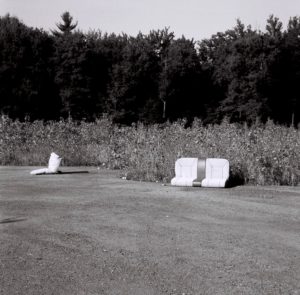Yesterday, January 6, 2021, many of us watched in horror as a mob of white supremacist militia members, conspiracy theorist adherents, Christian evangelicals, bikers, “ordinary” Trump supporters, miscreants, and out-and-out thugs breached the defenses of the United States Capitol Building, a world-wide symbol of Democracy. They did so at the unequivocal urging of the rogue American President, and with the aid and abetting of a group of Congressional Representatives and Senators, seeking to overturn legitimate election results.
Some watched in horror, but to be sure, there were many who watched not with horror at all, but rather with hope and joy in their hearts.
The day was intended to be solemn and ceremonial: the ritual acknowledgement of the will of the people in choosing the next President. That is, Congress had gathered to ratify the votes of the Electoral College and to affirm the peaceful transfer of power. Instead, insurrectionists pushed aside police, terrified public servants, invaded the Senate Chambers, and one hoodlum even desecrated the office of the Speaker of the House, while elected members and senators were squirreled away to safety.
The President, after earlier in the day exhorting people to do exactly this, later suggested that they “go home” but while doing so affirmed once more his lies to the effect that the election was stolen. And he concluded by saying to the white supremacists, the Neo-Nazis, the deluded, the thugs and the malefactors: “we love you” and “you are very special.”
And so, Democracy died yesterday.
But Democracy does not die all at once. It dies by a thousand – or a hundred – different cuts. It dies when people affirm the worst, not the best, in us. It dies when we, and our elected representatives, serve ourselves, and not the community. It dies when we turn away from decency and working to make the world a better place, and instead feed our hatreds, and stoke the suspicions of those who live in fear of “the other.” For Americans, it dies when we give up on the ideal of toiling for a “more perfect union.”
And so, we can say that Democracy died yesterday. But we can also say that it died previously, on Election Day, November 3, 2015, when the country elected a cheater, a reality television star, a grifter, a person who represented the lowest in us, rather than the highest: a person without the temperament, the competence, the intelligence, and the moral character to assume and carry out his duties. A case in point: the complete dereliction of duty during this Covid crisis, which has only accelerated in the post-election period, and resulted thousands upon thousands of additional deaths, the responsibility for which can be laid directly at his feet, along with the dangerous crisis of governance that we are in right now.
However, we can also say that Democracy died before that, when Mitch McConnell assumed Senate leadership, on January 3, 2015. He stated his main goal: the vindictive (and I believe, racist) determination to ensure failure of the Obama presidency. And Democracy died again and again during his tenure: for example, on March 16, 2016, when Merrick Garland was nominated by Barak Obama for the Supreme Court and McConnell refused to bring the nomination to the floor. Or again on October 26, 2020, when he presided over the confirmation of the theocratic cult member Amy Coney Barret, to replace the noble Ruth Bader Ginsburg on that same court. Or simply: Democracy died every time he refused to bring helpful legislation to the floor of the Senate. This is not about having a “loyal opposition,” helping to ensure that the government in power has some checks and stays in balance. This is about a regressive white man from a small State, illegitimately controlling the legislative agenda for the entire nation, without being elected to do so.
Perhaps it was the Supreme Court itself that inflicted a death, in its Citizens United decision of January 21, 2010, when it struck down restrictions on “independent expenditures from corporate treasures,” thereby affirming that corporations would be unfettered in spending and bribing in their efforts to cultivate favour and direct legislative benefit toward themselves.
We could say that Democracy died the day that Newt Gingrich became House Speaker on January 3, 1995. He ushered in a new, invigorated era of demagoguery and has never stopped carrying that flag.
Reflecting on my lifetime, though, I go back further: yes, to the criminality of Richard Nixon; but at least he was found out and summarily (relative to today, that is), resigned rather than facing certain expulsion. (This, of course, is exactly what should happen to the current President, even though Joe Biden is taking over in thirteen days. Donald Trump is unhinged and unfit for office and should be relieved of his duties immediately.)
But all that aside for now, I would also say that the death of Democracy occurred on August 12, 1986, when then President Reagan said: “The most terrifying words in the English language are: ‘I’m from the government and I’m here to help.’ ” People chuckled and nodded their heads upon hearing this nefarious witticism, but Reagan had planted a most destructive seed. Since that time, many Americans have turned away from an ideal: turned away from the idea of good, helpful, fair, and honourable government as a venerable and worthy institution.
The culmination of this was yesterday, when an ignorant, vicious mob disrupted the ceremonial duties of government – aided and abetted by the President himself as well by at least six Republican Senators and one hundred and forty Republican Representatives, including mine, Elise Stefanik, who voted to overturn the election results.
And so, what now?
Well, some would say that Democracy also lived yesterday. Despite all, the will of the people was affirmed, the voting result of the archaic[i] Electoral College was ratified. The Representatives and the Senators reconvened as soon as they were able, and over the objection of their less-than-honourable colleagues, did their duty in the wee hours of the night. It was a remarkable affirmation.
And one way or another, the current occupant of the White House and his corrupt family will be gone in less than two weeks. There is reason to hope and reason to believe in the resilience of the country, and that the United States will continue with its aspiration [ii] to become a real Democracy. The country has elected a President this time who is the very embodiment of decency, who more than anything works to bring out the best in us. And we have elected a Vice-President who champions justice and affirms the ambitions and capabilities of women – and men – everywhere, of all creeds and colours and ethnicities. And so, there is much to celebrate.
But I cannot say that I am entirely optimistic. The Trump supporters who believe the lie that the election was stolen, despite overwhelming evidence to the contrary, are still here. Their signs remain in their yards nearby my home, even today. I find myself struggling to find a way to understand and accept this. Also, the White Supremacists, the Misogynists, the Haters, the Militias, the Theocratic Evangelicals, the Conspiracy Believers are all still here. They are not going anywhere. I, and we, must find a way to limit their toxicity.
So, what, in the end, can we think and do? Rather than embrace blind optimism, I would rather abide by the words of Antonio Gramsci, who was imprisoned by the Fascists in Italy and died eventually because of the deterioration of his health and the neglect of same by his jailers. Of course, I do not embrace his Marxist philosophy, but I find a famous aphorism that he was fond of quoting to be helpful in a time like this. [iii]
Gramsci advocated “pessimism of the intellect,” along with “optimism of the will.” Pessimism of the intellect: things will not get better by themselves. They will not even get better once and for all. Optimism of the will: we must never give up in the face of these setbacks. We must be unyielding in our striving for what is good, what is decent, what is fair and just. We must help the Nation take its steps from an aspiring Democracy, to an actual one. In the face of darkness, it is sometimes all we can do is keep the lights on and try again in the light of morning.
My heart is bitter today. In my weakness, I can only reach for inspiration from the great ones: Mahatma Gandhi, Nelson Mandela, Susan B. Anthony, Jane Addams, Martin Luther King, and the young Nobel prize laureate, Malala Yousafzai. I do not have their capacity, I do not have their courage, and I certainly do not have their love. But I can, at least, aspire to these.
And we, as a people, can continue to aspire to Democracy, to go forward, and not only for our citizens, but all of humanity, to achieve a more perfect union.
PSC
January 7, 2021
_____________________________________________
[i] More on this another time.
[ii] More on this, too, another time. It is true that formally, the U.S. is the oldest intentional aspiring Democracy, but it is not yet fully one.
[iii] He attributed this to the novelist, Romain Rolland.

 Please see my photo site at www.peterscottcameron.com.
Please see my photo site at www.peterscottcameron.com. Please see my photography site at www.peterscottcameron.com.
Please see my photography site at www.peterscottcameron.com.